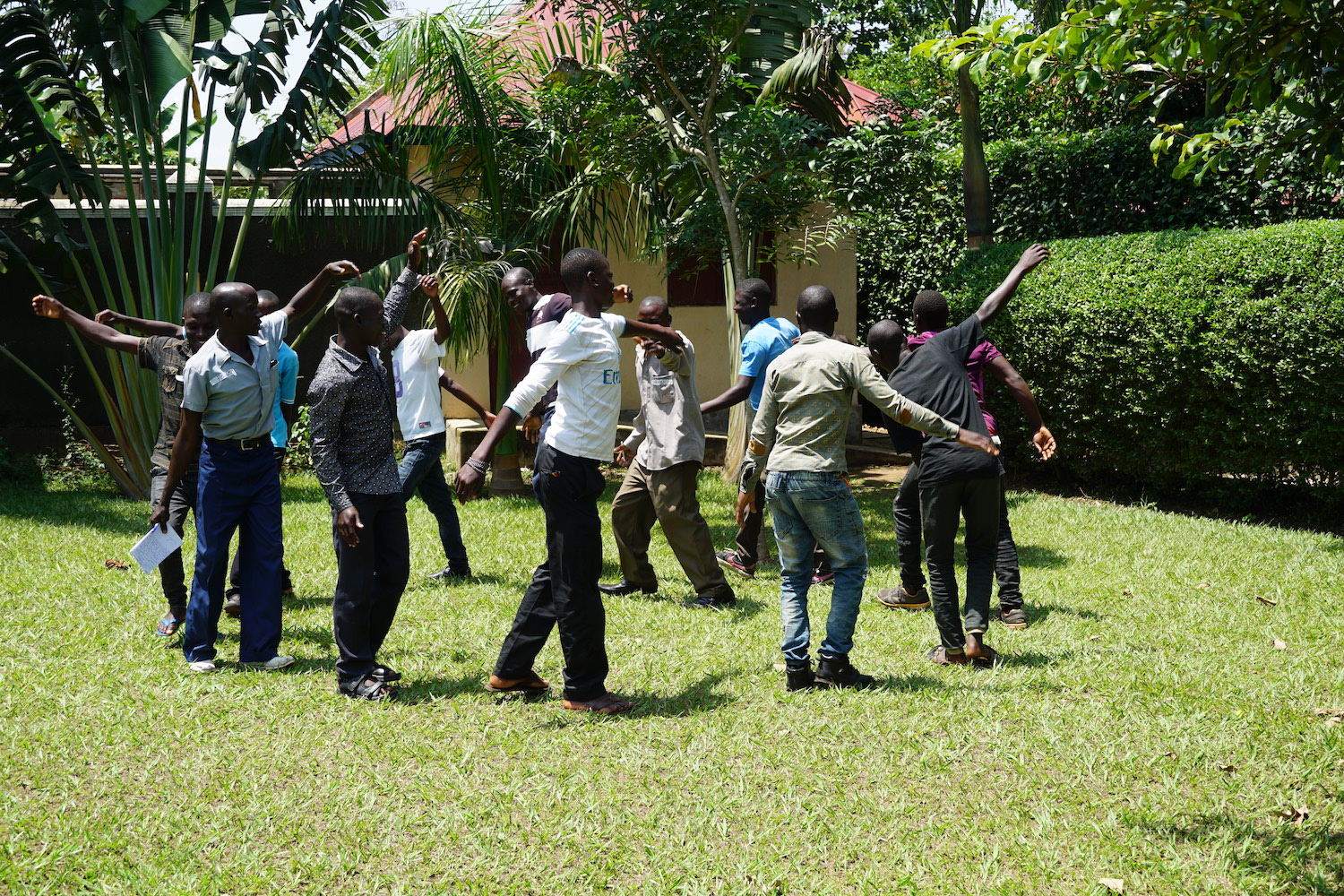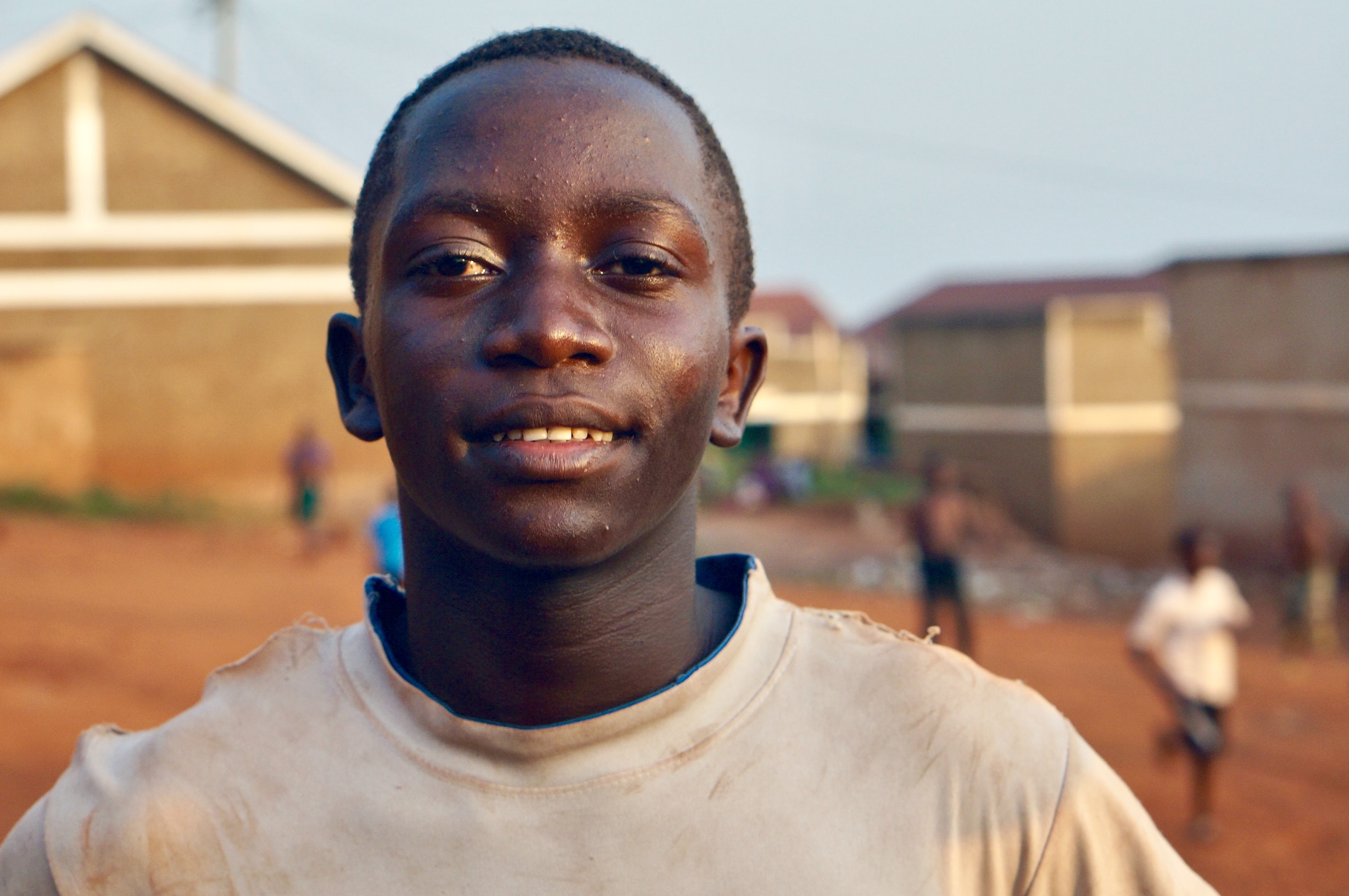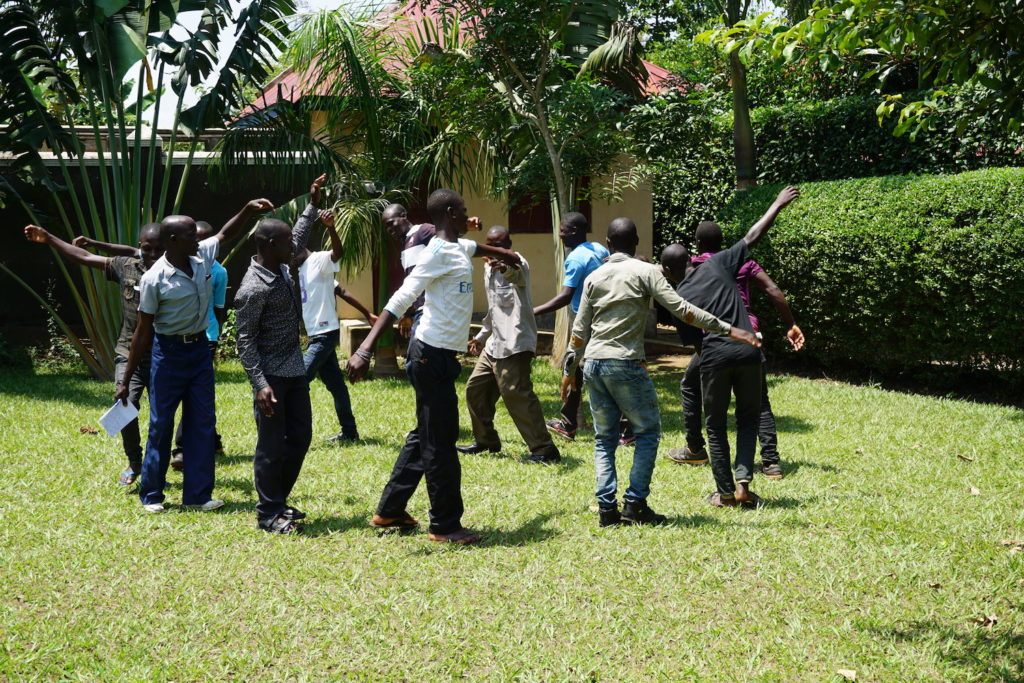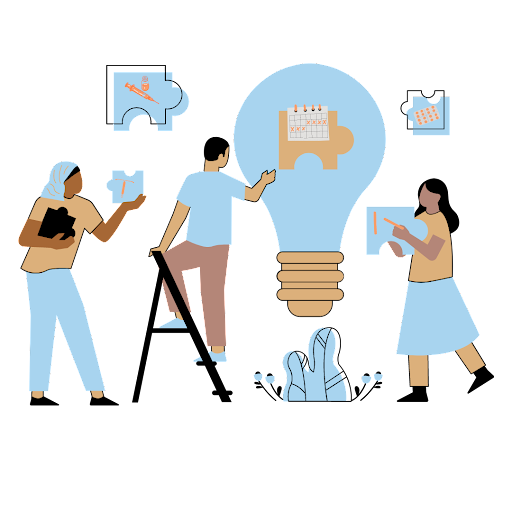“I learned how to use a condom.”
“I like knowing how to report violence.”
“I found out how HIV spreads.”
“Understanding the differences between boys and girls will help me when I get married because I don’t want to have a gap in our understanding of each other.”
“I found out some of my feelings, like defying my parents, are normal for my age.”
These comments from adolescent boys and young men (ABYM) in Uganda who took part in the field test of a new mentoring program spotlight the issues the program was created to address.
Under the U.S. Agency for International Development (USAID)-funded Youth Power Action project, FHI 360 developed and implemented a multicomponent mentoring program for ABYM (ages 15–24) called Young Emanzi. The program promotes positive gender norms, gender-equitable and healthy relationships, and economic productivity while also addressing the voluntary reproductive health care needs of ABYM. Emanzi means “male role model” in Rukiga, one of the local languages of Uganda.

Young Emanzi builds upon FHI 360’s successful implementation of two other mentoring programs, Anyaka Makwiri (for adolescent girls and young women) and Emanzi (for men with partners).
The program’s promise
ABYM face unique health and development challenges that affect their ability to make a successful, healthy transition into adulthood. Promoting positive youth development and transforming gender norms can help young men to address their own health needs and also to support young women to attain theirs. Research has shown that boys with positive male role models are more likely than those without them to question harmful gender stereotypes and inequalities (Plourde et al., 2020).
Young Emanzi builds upon FHI 360’s successful implementation of two other mentoring programs, the YouthPower Action mentoring programming for adolescent girls and young women (AGYW), called Anyaka Makwiri, and the Advancing Partners and Communities project’s Emanzi program for men with partners. Both programs have been implemented and evaluated. Emanzi was shown to be effective at changing gender norms (measured by Gender-Equitable Men [GEM] scale scores) and increasing contraceptive use and economic productivity. Anyaka Makwiri demonstrated significant improvement in HIV knowledge and savings behavior.
The Young Emanzi program recognizes that for it to be truly gender transformative, AGYW also need to be engaged. Thus, there are four joint sessions with AGYW covering topics on communication about money, gender and health, puberty, and pregnancy prevention.
What is the Young Emanzi Toolkit?
The Young Emanzi mentoring program consists of 16 sessions, each approximately 1.5 to 2 hours long, including the four joint sessions with AGYW and their mentors. The program concludes with a community celebration and graduation for the ABYM and AGYW, that recognizes their completion of the program. Each session consists of information-sharing; games and role-plays; and a challenge to practice between sessions the skills they learned on topics that include gender, financial literacy, puberty and reproductive health, HIV and voluntary medical male circumcision, alcohol abuse, and violence prevention. The program also addresses the critical soft skills that have been identified as the most likely to increase the odds of youth success: positive self-concept, self-control, and higher order thinking (Gates et al.,2016).
The Young Emanzi Toolkit for Mentoring Adolescent Boys and Young Men has four components:
- Guidance document describing the development of the toolkit, roles and responsibilities of partners, resources for training mentors, job aids, and more.
- Trainers’ guide and resources containing instructions for trainers to prepare mentors to implement the program.
- Mentors’ handbook with instructions for conducting 16 sessions.
- Mentors’ flipbook to be used during mentoring sessions, featuring illustrated pages for mentees and session summaries for mentors.
The toolkit’s design was informed by a systematic review that examined mentoring programs that measured the outcomes of interest (Plourde et al., 2020). In addition, participant engagement workshops were held with men who had completed the Emanzi program (Emanzi graduates), AGYW and their mentors from Anyaka Makwiri, and ABYM. Lastly, a field test of the materials with Emanzi graduates and ABYM helped fine-tune the program.

In addition to voluntary family planning and health topics, Young Emanzi also addresses important soft skills that have been identified as contributing to youth success: positive self-concept, self-control, and higher-order thinking. Photo by Esteban Castle on Unsplash.
How can my organization use the Young Emanzi Toolkit?
The toolkit is intended to be adapted to suit the specific needs of ABYM within their local environment and cultural context. The Young Emanzi program can be integrated into an existing program using the processes described in the Young Emanzi Guidance Document. Additionally, although this program was designed to have Emanzi graduates as mentors, if there is no Emanzi program where Young Emanzi is being implemented, mentors should be men who have completed a similar gender-transformative program.
As the communities around the world continue to face gender-based violence, violent extremism, and poor health outcomes for ABYM and adult men (all potentially exacerbated by the coronavirus pandemic), communities must work together to develop their young people for a better future. The Young Emanzi program provides a holistic approach to strengthening and building the skills and resources ABYM need to transform into gender-equitable leaders in their communities.
FHI 360 is currently seeking funding to make adaptations that address pandemic-related issues, including the need for more physical distancing, the rise in gender-based violence, increased mental health concerns, and the shift to virtual programming where appropriate.
Partners interested in learning more about the Young Emanzi Toolkit or integrating this activity into their programs can contact Leigh Wynne at Lwynne@fhi360.org.
References
Plourde K, Thomas R, Nanda G. Boys mentoring, gender norms, and reproductive health—potential for transformation. Durham, NC: FHI 360; 2020.
Gates S, Lippman L, Shadowen N, Burke H, Diener O, Malkin M. Key soft skills for cross-sectoral youth outcomes. Washington, DC: USAID’s YouthPower: Implementation, YouthPower Action; 2016.









